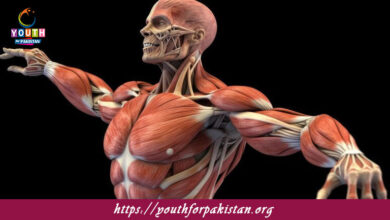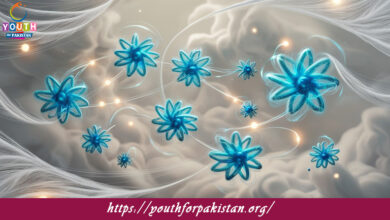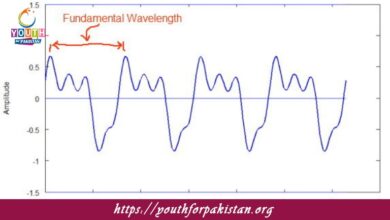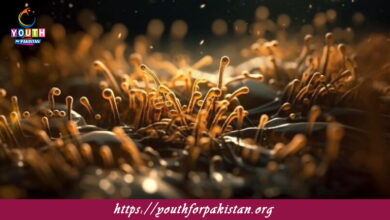Factors Effecting Photosynthesis MDCAT MCQs with Answers
Welcome to the Factors Effecting Photosynthesis MDCAT MCQs with Answers. In this post, we have shared Factors Effecting Photosynthesis Multiple Choice Questions and Answers for PMC MDCAT 2024. Each question in MDCAT Biology offers a chance to enhance your knowledge regarding Factors Effecting Photosynthesis MCQs in this MDCAT Online Test.
Which of the following factors does not affect the rate of photosynthesis?
a) Light intensity
b) Temperature
c) Soil pH
d) Carbon dioxide concentration
How does an increase in light intensity affect the rate of photosynthesis?
a) It decreases the rate
b) It has no effect
c) It increases the rate up to a certain point
d) It stops the process
Which pigment is primarily responsible for capturing light energy in photosynthesis?
a) Carotenoids
b) Chlorophyll
c) Xanthophyll
d) Phycobilin
What effect does a high temperature have on the rate of photosynthesis?
a) It always increases the rate
b) It decreases the rate
c) It has no effect
d) It increases the rate up to an optimum level
How does carbon dioxide concentration influence photosynthesis?
a) Higher concentrations increase the rate
b) Higher concentrations decrease the rate
c) It has no effect
d) It stops the process
Which factor is the most limiting in the photosynthesis process?
a) Light intensity
b) Carbon dioxide concentration
c) Water availability
d) Temperature
How does water stress affect photosynthesis?
a) It increases the rate of photosynthesis
b) It has no effect
c) It decreases the rate of photosynthesis
d) It doubles the rate of photosynthesis
What happens to the rate of photosynthesis when light intensity is reduced to very low levels?
a) The rate increases
b) The rate remains constant
c) The rate decreases
d) The process stops completely
How do chlorophyll levels affect photosynthesis?
a) Higher chlorophyll levels increase the rate of photosynthesis
b) Higher chlorophyll levels decrease the rate
c) Chlorophyll levels have no effect
d) Chlorophyll levels stop the process
Which gas is a byproduct of photosynthesis?
a) Oxygen
b) Carbon dioxide
c) Nitrogen
d) Methane
What is the effect of increasing temperature beyond the optimum range on photosynthesis?
a) It speeds up the process
b) It has no effect
c) It decreases the rate
d) It doubles the rate
Which type of light is most effective for photosynthesis?
a) Green light
b) Blue light
c) Red light
d) Yellow light
What effect does a decrease in chlorophyll content have on photosynthesis?
a) Increases the rate
b) No effect
c) Decreases the rate
d) Increases the efficiency
Which process in photosynthesis is most affected by temperature?
a) Light-dependent reactions
b) Light-independent reactions
c) Water splitting
d) Carbon fixation
How does the availability of nutrients influence photosynthesis?
a) It has no effect
b) It increases the rate
c) It decreases the rate
d) It stops the process
What is the effect of high oxygen concentration on the rate of photosynthesis?
a) It increases the rate
b) It has no effect
c) It decreases the rate
d) It stops the process
How does increased carbon dioxide concentration affect the photosynthesis rate in C3 plants?
a) It decreases the rate
b) It has no effect
c) It increases the rate
d) It stops the process
What is the impact of shading on photosynthesis in plants?
a) It increases the rate
b) It has no effect
c) It decreases the rate
d) It doubles the rate
Which environmental factor affects the opening and closing of stomata?
a) Soil type
b) Water availability
c) Light intensity
d) Humidity
What role does temperature play in the enzyme activity of photosynthesis?
a) It increases the enzyme activity continuously
b) It decreases the enzyme activity at higher temperatures
c) It has no effect
d) It increases the enzyme activity up to an optimum point
How does an increase in light intensity affect the rate of the Calvin cycle?
a) It decreases the rate
b) It increases the rate
c) It has no effect
d) It stops the process
What is the effect of a low carbon dioxide concentration on the photosynthesis rate?
a) Increases the rate
b) Has no effect
c) Decreases the rate
d) Stops the process
Which factor affects the water availability in plants?
a) Soil moisture
b) Temperature
c) Light intensity
d) All of the above
How does a deficiency in water impact the photosynthesis rate?
a) It increases the rate
b) It has no effect
c) It decreases the rate
d) It doubles the rate
What is the effect of a high concentration of chlorophyll on photosynthesis?
a) It decreases the rate
b) It has no effect
c) It increases the rate
d) It stops the process
Which factor is directly related to the absorption of light in photosynthesis?
a) Chlorophyll concentration
b) Temperature
c) Carbon dioxide concentration
d) Oxygen levels
How does high humidity affect photosynthesis?
a) It increases the rate
b) It has no effect
c) It decreases the rate
d) It stops the process
What is the effect of increasing the wavelength of light on photosynthesis?
a) It has no effect
b) It decreases the rate
c) It increases the rate
d) It stops the process
How does the type of light (e.g., blue, red) affect photosynthesis?
a) Different types of light have varying effects; red light is most effective
b) All light types have the same effect
c) Blue light is most effective
d) Green light is most effective
Which factor can reduce the efficiency of photosynthesis in plants?
a) Excessive light intensity
b) Low carbon dioxide concentration
c) High temperatures
d) High water availability
What happens to the rate of photosynthesis when the light intensity exceeds the saturation point?
a) It increases further
b) It remains constant
c) It decreases
d) It stops
How do stomatal openings affect the rate of photosynthesis?
a) More open stomata increase the rate
b) More closed stomata increase the rate
c) Stomatal openings have no effect
d) They stop the process
What is the effect of a decrease in chlorophyll concentration on the absorption of light?
a) It increases absorption
b) It has no effect
c) It decreases absorption
d) It stops absorption
Which environmental condition can lead to the closing of stomata?
a) High humidity
b) High temperature
c) High light intensity
d) Low carbon dioxide levels
How does an increase in oxygen concentration affect the rate of photosynthesis?
a) It has no effect
b) It increases the rate
c) It decreases the rate
d) It stops the process
What happens to the rate of photosynthesis when there is an excess of carbon dioxide?
a) It decreases
b) It has no effect
c) It increases up to a certain point
d) It stops
How does the type of soil affect photosynthesis?
a) It has no effect
b) It affects water availability and thus photosynthesis
c) It directly increases the rate
d) It decreases the rate
Which of the following factors has the least impact on the rate of photosynthesis?
a) Light intensity
b) Carbon dioxide concentration
c) Soil type
d) Temperature
How does an increase in atmospheric carbon dioxide affect the efficiency of photosynthesis?
a) Decreases efficiency
b) Has no effect
c) Increases efficiency
d) Stops photosynthesis
What happens to the rate of photosynthesis when the concentration of limiting factors is increased?
a) It decreases
b) It remains constant
c) It increases
d) It stops
How does increasing the level of nutrients in the soil affect photosynthesis?
a) It has no effect
b) It decreases the rate
c) It increases the rate
d) It stops the process
What is the effect of high light intensity on chlorophyll?
a) It decreases chlorophyll content
b) It increases chlorophyll content
c) It has no effect
d) It stops chlorophyll synthesis
How does the availability of water influence the photosynthesis process?
a) It has no effect
b) It decreases the rate
c) It increases the rate
d) It stops the process
What effect does an increase in temperature have on the rate of photosynthesis in the light-dependent reactions?
a) It decreases the rate
b) It has no effect
c) It increases the rate
d) It stops the process
What role do enzymes play in photosynthesis?
a) They increase the rate of light-dependent reactions
b) They convert light energy into chemical energy
c) They facilitate the Calvin cycle
d) All of the above
Which factor can cause photosynthesis to be inefficient?
a) Excessive water availability
b) Excessive light intensity
c) High temperature
d) Low light intensity
If you are interested to enhance your knowledge regarding Physics, Chemistry, Computer, and Biology please click on the link of each category, you will be redirected to dedicated website for each category.





